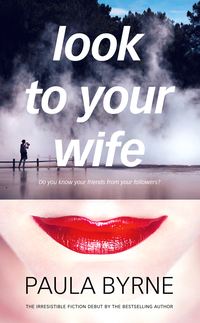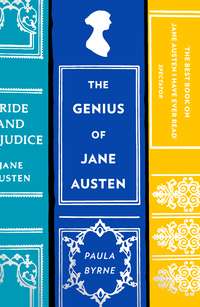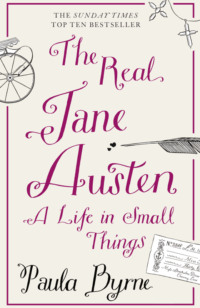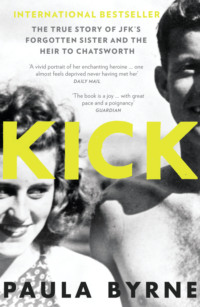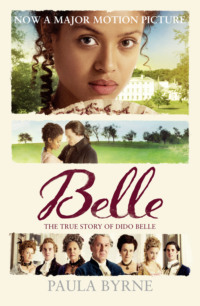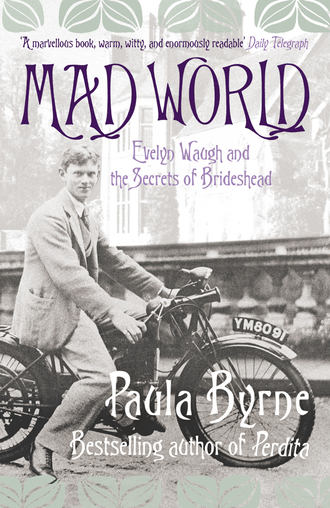
Полная версия
Mad World: Evelyn Waugh and the Secrets of Brideshead
They met at pubs for lunch and spent days at Underhill. Once he turned up to see her, already drunk, carrying three bottles of champagne under his arm, which they proceeded to consume out of teacups and various pots and other china receptacles that they found around the place. He liked her extremes, her melancholy and wild excesses. They got drunk together, they quarrelled, they read Browning, Plato and Dostoyevsky. She teased him, she loved his intelligence, but she did not want to go to bed with him (even though she was highly sexed, rating her lovers on their performance and counting Paul Robeson among her conquests). ‘A ghost with a glass of gin in her hand’, she was also in love with religion – to a degree that later became maniacal. She once wrote Evelyn a ‘raving sixteen page letter describing a recent visit to heaven’.
Evelyn acknowledged in his autobiography that his feelings for Olivia were a projection of his love for all the Plunket Greenes, who were so different from the Waughs: ‘I had in fact fallen in love with a whole family, and, rather as Mr E. M. Forster describes in Howards End, had focused the sentiment upon the only appropriate member, an eighteen-year-old daughter.’
Harry Greene, whom Evelyn described as a ‘very handsome Irishman’, was only occasionally on the scene, having left to live with his mistress. The person who truly cast a spell over him was the matriarch of this magnetic though flawed family, Gwen Plunket Greene. Evelyn encountered her on New Year’s Day in 1925. He wrote in his diary: ‘I met Mrs Greene for the first time and loved her.’ She was a first draft for the magnificent but monstrous Lady Marchmain. Gwen exerted a magic spell over him with her beauty, poise and humour. He later realised that her serenity was a consequence of a ‘hidden life of prayer’. She would later convert to Roman Catholicism and was already heading in that direction.
Evelyn’s diary records countless invitations to tea, dinner parties and family holidays with the Plunket Greenes. They were unsettled and moved house five times in ten years – ‘during which’, noted Evelyn, ‘I was practically a member of the family’. That the family was on the point of converting to Catholicism may have been an additional attraction.
Richard Plunket Greene was in the same position as Evelyn: ‘workless and penurious’. In his case, the position was aggravated by his desire to get married. His decision to apply for a position as a schoolmaster had prompted Evelyn to follow suit. It was the obvious option. As Evelyn once wrote to his school friend, Dudley Carew, ‘no one in our class need ever starve because he can always go as a prep school master, not a pleasant job but all roads lead to Sodom’.
The usual route was to sign up with the scholastic agency Gabbitas and Thring (W. H. Auden nicknamed them ‘Rabbitarse and String’). Evelyn Waugh, John Betjeman, Graham Greene and the fictional Paul Penny-feather of Decline and Fall all passed through its door. Greene said that to do so was to ‘pawn yourself instead of your watch’.
In early January 1925, Evelyn was interviewed by the headmaster of the prep school Arnold House. The name may have been evocative of the great Thomas Arnold of Rugby, but the location was less promising: it was in Denbighshire in North Wales, which could hardly have been further from Oxford.
Mr Banks, the head, ‘a tall old man with stupid eyes’, offered the post forthwith. He was desperate and, if Evelyn is to be believed (he is probably not to be), only one question was asked: ‘Did he possess a dinner jacket?’ This was necessary to entertain the wealthier parents. With only a couple of weeks to go before the start of term, Evelyn threw himself into a farewell whirl of socialising with the Plunket Greenes.
There was a disastrous evening at the Café Royal, where champagne cocktails were drunk, followed by oysters and chablis. Olivia disgraced herself. A few days later Evelyn noted in his diary that he had attended a dinner party of his brother Alec’s that was ‘almost wholly spoiled by the abominable manners of the Greene family, who arrived fifty minutes late’. After dinner they went to the theatre and then on to a nightclub where, drunk again, Olivia began kissing a handsome fellow called Tony Bushell. Evelyn tried unsuccessfully to get equally drunk himself. He was very rude to Olivia, but she was in no condition to take offence. The next day, ‘with a glowing resentment against the Greene family’, he sent word that he was leaving ‘for the country’. But that evening he spoiled his gesture by getting drunk and calling at the Plunket Greenes’ in the early hours of the morning, accompanied by two friends. He said that he would not leave until Olivia knelt down and apologised to him. She declined and he broke a gramophone record. A version of the episode was later incorporated into his novel A Handful of Dust.
Amends were made before he went north. Olivia came to see him at Underhill where she told him that he was a great artist and should not become a schoolmaster. He was upset at the thought that she was finally beginning to show interest just at the moment when he was leaving for North Wales: ‘I went to bed feeling more desolate than I had felt since the embarkation of Alastair.’ Whilst he knew that marriage was out of the question, he felt that he was getting close to a romantic and sexual relationship. Women, he was beginning to discover, were far more complex and tricky than men.
He left for Arnold House on 23 January 1925. When he arrived there he found a telegram awaiting him from Hugh Lygon and John Sutro. It read ‘On, Evelyn, On’.
CHAPTER 5 In the Balance
Despite his misgivings, Evelyn enjoyed his brief experience as a schoolmaster. When John Betjeman was forced to turn to teaching, Evelyn assured him that ‘You will remember these schooldays as the happiest time of your life … not entirely facetiously.’ More importantly, the time at Arnold House, in all its glorious awfulness, gave Waugh the inspiration for his first novel.
A letter to his mother on his arrival described the haphazard management of the establishment: ‘it is the most curiously run school that ever I heard of. No timetables nor syllabuses nor nothing. Banks [headmaster] just wanders into the common room and says ‘‘There are some boys in that classroom. I think they are the first or perhaps the fourth. Will someone go and teach them Maths or Latin or something’’ and someone goes and I go on making a wood engraving.’ The wood engraving was for Olivia, whose hold still consumed him. He felt cut off. The school was in Llanddulas, a tiny town sandwiched between Rhyl and Colwyn Bay.
His wit made him popular with the boys and he in turn found them amusing, usually unintentionally so. ‘Yesterday in a history paper,’ reads a diary entry written on a cold February night, ‘the boy Howarth wrote: ‘‘In this year James II gave birth to a son but many people refused to believe it and said it had been brought to him in a hot water bottle’’.’
One of the new masters was itching to start a mutiny against the amiable and ineffectual headmaster. ‘I hope there will be trouble,’ responded Evelyn. He found some of the boys ghastly, but warmed to others among them. He let the clever ones read racy French novels whilst he did his own work. When they asked what he was writing, he would reply: ‘A history of the Eskimos.’ He continued to dress somewhat in the manner of Mr Toad – in plus fours, a tweed jacket and a roll-neck sweater with a check collar peeping out. He took to wearing spectacles and smoking a pipe. He also grew a moustache. Like his fictional alter ego Paul Pennyfeather, Evelyn gave organ lessons despite being not in the least musical.
Though he made the best of the place, he was low in spirits, missing the Plunket Greenes and thinking of his past life. He was desperate for news from the city of his dreams, writing to Harold Acton and pleading for updates on the Hypocrites.
When he returned to London in the holidays he saw a lot of Olivia. As usual, her company was synonymous with heavy drinking and committed party-going. One party in particular ended up with Evelyn under arrest (an incident that turns up in Brideshead). Evelyn and Olivia gave a party, to which her cousin Matthew Ponsonby was invited. He came in his car and was sent out to buy more drink with Evelyn, who was, by this time, already drunk. The men stopped off for drinks along the way and were arrested for driving the wrong way around a traffic island. Matthew and Evelyn, ‘Drunk and Incapable’, were put into police cells. The next day, Evelyn was bound over at the cost of £2. It was far more serious for Matthew, who was the driver of the car. Though his father (the Under Secretary of State for Foreign Affairs) bailed him out, Matthew came extremely close to a prison sentence. In the end he was banned from driving for a year and given a large fine, half of which Evelyn offered to pay: ‘After all I was rather more than half to blame and I got off so lightly myself.’
The Ponsonbys blamed Evelyn for the whole business. They described him as a ‘disreputable friend of the Greenes’. Their son had been led astray out of his ‘good nature’. Evelyn, they contended, was an irresponsible drunk who had appeared at Mrs Plunket Greene’s house already inebriated. He had proceeded to decant a bottle of champagne into Gwen’s white china ducks, persuading his friends to drink from them. But Ponsonby was far from blameless; he was an incorrigible drink-driver. Before long, there was another, much worse incident, also hushed up, in which he knocked over and ‘killed or at least seriously injured’ a young boy.
Though he felt guilty about his responsibility for the Plunket Greenes being dragged into the ‘Drunk and Incapable’ affair, he still spent Easter with them at the disused lighthouse they were renting on Lundy Island. Lady Plunket, as Evelyn called Gwen, met him and Olivia off the boat. In the evening she read aloud to them, while David drew caricatures. Richard and his fiancée Elizabeth were also there, as was Terence Greenidge (revisiting one of his filming locations from the previous year). Evelyn was still unable to cure himself of his love for Olivia: ‘While I was in Denbighshire I had hoped that I only loved her as a personification of all the jolly things I had left behind, but here I am with Terence mouthing Kant into a pint glass and David making endless jokes about Lesbos and lavatories, and Richard rowing unseaworthy boats in fearnought trousers, and Lady Plunket serene over it all, but I am still sad and uneasy and awkward whenever I am with Olivia.’
He felt inhibited, not to say mildly disgusted, by the sexual freedoms of the party. One night, after some earnest conversation with Richard’s fiancée, he joined the others only to find a girl called Anne, almost naked, ‘being slapped on the buttocks and enjoying herself ecstatically’. Another house guest, Julia Strachey (niece of the biographer Lytton Strachey), was looking on. Julia, rather like Evelyn, was a misfit and a writer who drifted through life attempting, as she put it in an unfinished memoir, to ‘find some family love after all’. Olivia allowed Evelyn no sexual liberties, but Lady Plunket’s madcap world on Lundy was a welcome change from both home and school.
Back at Arnold House after the Easter holidays, things began to look up. Evelyn had applied for a new job as secretary to C. K. Scott Moncrieff, the translator of Marcel Proust. He was assured that he would be successful. It apparently did not matter that he could not type and did not know the languages out of which Moncrieff translated. The position would mean relocation to Pisa: Moncrieff was a homosexual and a Roman Catholic convert who felt more comfortable in Italy than England.
The thought that he would only have to endure one more term as a schoolmaster spurred Evelyn on. He was also pleased with the progress he was making with his novel ‘The Temple at Thatch’. ‘I am making the first chapter a cinema film,’ he reported, ‘and have been writing furiously ever since. I honestly think that it is going to be rather good.’ Furthermore, the arrival of a new schoolmaster, Dick Young, brightened the picture considerably.
Dick loved to drink and in the local pub would tell the other masters of his transgressions. He had been expelled from Wellington, sent down from Oxford, forced to resign his commission in the Army, ‘has left four schools precipitately, three in the middle of the term through his being taken in sodomy and one through his being drunk six nights in succession. And yet he goes on getting better and better jobs.’ The reason was that whenever he left a school in disgrace, he always took with him very good references, since no headmaster dared to confess that he had hired a pederast.
Evelyn recorded a day’s outing to Snowdonia, which was a bore for all the masters, except for Young. He claimed that he had enjoyed the day enormously. ‘Enjoyed yourself?’ asked Evelyn. ‘What did you find to enjoy?’
‘Knox minor,’ Young replied with what Evelyn called ‘radiant simplicity’. ‘I felt the games a little too boisterous, so I took Knox minor away behind some rocks. I removed his boot and stocking, opened my trousers, put his dear little foot there and experienced a most satisfying emission.’
In his autobiography, Evelyn tactfully referred to Dick Young under the pseudonym of ‘Grimes’. He describes him as ‘monotonously pederastic and talks only of the beauty of sleeping boys’. He himself had grown fond of the boys and was pleased that they had done well in their history examination.
For a short time during that summer term, his happiness increased. He handed in his notice in the ‘benign contemplation of a year abroad drinking chianti under olive trees’. But then news reached him that the job was not his after all. More bad news came with Harold Acton’s reaction to his novel, ‘The Temple at Thatch’. The verdict was negative: ‘Too English for my exotic taste. Too much nid-nodding over port.’ Evelyn promptly burnt the manuscript in the school boiler room and went down to the seaside. He took off his clothes and left them in a pile on the beach, accompanied by a suicide note consisting of a quotation from Euripides (in the original Greek, which he had taken the trouble to verify in a school textbook). Then he began swimming out to sea, intending to end it all. But he encountered a shoal of jellyfish, was stung on the shoulder and turned back.
The school year came to an end and Evelyn left Arnold House for London, with no job prospects and no money. He was at his lowest in these months. All his friends seemed to be developing their careers while his was going nowhere. There appeared to be no alternative but to seek another teaching post. Richard Plunket Greene told him about a vacancy at the school where he was teaching. Located at Aston Clinton near Aylesbury in Buckinghamshire, it was within striking distance of both London and Oxford. And Richard would be a colleague. He got the job.
Evelyn was determined to enjoy his summer before starting there in the autumn. Alastair Graham was back from Africa. They renewed their bond. At the end of August, Evelyn stayed with Alastair in Barford for a week. He heard Mass in a hideous church in Leamington Spa. He took a bus over to Stratford-upon-Avon, where Alastair was learning the art of hand-press book printing. They had cocktails at one hotel and luncheon at another, after which Evelyn went to the theatre and found the ‘audience most bardolatrous, laughing religiously at the most pathetic puns’. Afterwards, he met up with Alastair again. They had tea together, then returned to Barford ‘where we dined in high-necked jumpers and did much that could not have been done if Mrs Graham had been here’. She had left home in a rage on discovering that her son was guaranteeing Evelyn’s overdraft.
Several letters from Alastair survive from this time. ‘My dear Evelyn,’ one of them begins,
Thank you for your letter. Evelyn, it was very serious for a poor, careless, happy person like me. Of course I want you to treat me like your nature wishes to. I don’t understand how one could treat anyone otherwise without being insincere. Travail [?] is a charming spiced memory that I am most pleased to think of in my quiet moments. It is those memories that I live on.
Another one reads:
My dearest Evelyn, I feel very lonely now. But you have made me so happy. Please come back soon … My love to you, Evelyn; I want you back again so much.
Though ‘The Temple at Thatch’ had been consigned to the boiler of Arnold House, its opening chapter in the style of a film seems to have been recycled in a short story called ‘The Balance’, which Evelyn finished by the end of that summer of 1925. He thought sufficiently well of it to send it to Leonard Woolf at the Hogarth Press and Geoffrey Whitworth at Chatto & Windus.
The cinematic beginning has four unattributed voices. This kind of dialogue – like the telephone conversation – became one of Waugh’s literary trademarks. Each voice reveals the character of the speaker with precision and economy. In creating such voices, Evelyn was finding his own literary voice for the first time.
The main narrative is presented as a silent film whose captions are commented upon by a cinema audience that includes two housemaids and a Cambridge undergraduate. Evelyn drew upon much of his own experience for the hero, Adam Doure (the surname should presumably be pronounced to rhyme with ‘Waugh’). Physically, though, the character is created more in the image of Alastair than Evelyn.
Adam, like his creator, is a student at a London art school. He is still spiritually attached to Oxford, from where he has graduated and where his friends still reside. And he tries to commit suicide, leaving a self-dramatising note (albeit in Latin as opposed to Greek). His suicide attempt is thwarted when he vomits up the poison he has administered himself. Adam decides, on balance, that pursuit of his art is better than suicide.
There are other autobiographical details woven into the narrative: Evelyn’s sense of not belonging, his sadness, his unrequited love for Olivia (who becomes the excellently named Imogen Quest). Even his sale of his Oxford books is included. Adam’s library is ‘remarkable for a man of his age and means’, consisting of admirably bound volumes, some of them rare editions. Like Evelyn, Adam returns to Oxford in search of his friends and the happiness of his undergraduate existence. The Oxford scene is headed with the line from Quiller-Couch that Evelyn quoted so often: ‘KNOW YOU HER SECRET NONE CAN UTTER?’ The camera is imagined following Adam from the station through the city of dreaming spires to King Edward Street. Adam is visiting a special friend:
LORD BASINGSTOKE’S ROOMS. KING EDWARD STREET.
Interior of Lord Basingstoke’s rooms. On the chimney-piece are photographs of Lord Basingstoke’s mother and two of Lord Basingstoke’s friends, wearing that peculiarly inane and serene smile only found during the last year at Eton and then only in photographs. Some massive glass paperweights and cards of invitation.
On the walls are large coloured caricatures of Basil Hay drawn by himself at Eton, an early nineteenth-century engraving of Lord Basingstoke’s home; two unfinished drawings by Ernest Vaughan of the Rape of the Sabines and a wool picture of two dogs and a cat.
Lord Basingstoke, contrary to all expectation, is neither drinking, gaming, nor struggling with his riding boots; he is engaged on writing a Collections Paper for his tutor.
Lord Basingstoke’s paper in a pleasant, childish handwriting.
‘BRADLAUGH v. GOSSETT. THIS FAMOUS TEST CASE FINALLY ESTABLISHED THE DECISION THAT MARSHAL LAW IS UNKNOWN IN ENGLAND.’
He crosses out ‘marshal’ and puts ‘martial’; then sits biting his pen sadly.
‘Adam, how lovely; I had no idea you were in Oxford.’
They talk for a little while.
‘RICHARD, CAN YOU DINE WITH ME TO-NIGHT. YOU MUST. I’M HAVING A FAREWELL BLIND.’ Richard looks sadly at his Collections Paper and shakes his head.
‘My dear, I simply can’t. I’ve got to get this finished by tonight. I’m probably going to be sent down as it is.’
Adam returns to his taxi.
In this poignant little scene, Hugh Lygon enters the fictional world of Evelyn Waugh. His mother is a dominating spirit, as, by way of that nineteenth-century engraving, is Madresfield. Hugh’s passions are captured: drinking, gaming, riding. As is his academic weakness: the childish handwriting, the inability to spell ‘martial’. But hanging over the pen portrait are the qualities that Evelyn so loved. On the one hand, the capacity for friendship – the photographs of fellow Old Etonians, the invitations revealing that everyone wants his company. And on the other, the sense of sadness and hopelessness. In the flesh, Lord Basingstoke is Hugh Lygon. In the imagination, he is Sebastian Flyte in embryo.
As Waugh developed as a writer, he perfected a technique of combining the characteristics of his friends, enemies and acquaintances in order to create composite characters. His later portraits of Hugh are not of Hugh alone. In that sense, the glimpse of Lord Basingstoke in his Oxford rooms, so clearly evocative of Hugh and no one else, is the closest we ever come to the most elusive of Evelyn’s lovers.
Another aspect of Waugh’s creative sophistication was his way of splitting his own identity into more than one character. The full extent of this practice has not always been noticed by his critics and biographers. They have seen that Adam Doure is a self-portrait, but a second double has escaped observation. Adam goes around Oxford trying to find an old friend to dine with. Everyone is engaged. But then as a last resort he calls on a certain Ernest Vaughan. This E. V. has ugly rooms in a second-rate college. They are situated (symbolically) between ‘the lavatories and the chapel’. Caricatures and messy drawings line his walls. Among them is an ‘able drawing of the benign Basingstoke’. Ernest is carefully described, sitting in his wicker chair as he mends darts ‘with unexpected dexterity’. He is ‘a short, sturdy man, with fierce little eyes and a well-formed forehead’. His well-made tweeds are stained with drink and paint. The two men proceed to get drunk over dinner. Ernest sketches Adam. Later, after more drinking in another Oxford pub, Ernest ‘beset by two panders, is loudly maintaining the abnormality of his tastes’. Then with ‘swollen neck and staring eye’, Ernest almost gets into a fight with Imogen Quest’s brother. He is violently sick at the last minute, foreshadowing Adam’s reprieve when he vomits up the poison.
The story ends with a conversation between the Quests and some aristocratic Oxford friends who pass judgement on the hapless Vaughan: ‘Just the most awful person in the world … Isn’t he short and dirty with masses of hair.’
Imogen, bored and repelled by Adam, is intrigued by a glimpse she has had of the awful Ernest: ‘I think he looked very charming. I want to meet him properly.’
‘Imogen, you can’t, really. He is too awful.’
The story ends with Imogen determined to persuade Adam to orchestrate a meeting with his funny little friend. Ernest Vaughan is on his way to becoming an unlikely romantic hero.
Adam Doure is Evelyn Waugh, but so is Ernest Vaughan. On returning to Oxford, Adam meets his own other self, a doppelganger who is also drawn to Basingstoke/Hugh, and who becomes a device for Waugh to fantasise about succeeding in his doomed quest for the love of Imogen/Olivia. Many things are in the balance in this most accomplished of Waugh’s early stories: not only the choice between life and death, but also the question of sexual orientation and the writer’s need to hold together his personal experience and his gift for fantastical invention.*
September 1925 and the new term at Aston Clinton beckoned. It was time once again for Evelyn to say goodbye to Alastair. He felt more ready on this occasion. Alastair and his friend Christopher Hollis were beginning to bore him with their endlessly rehashed conversations about just two subjects, ‘Catholicism’ and ‘the Colonies’.


